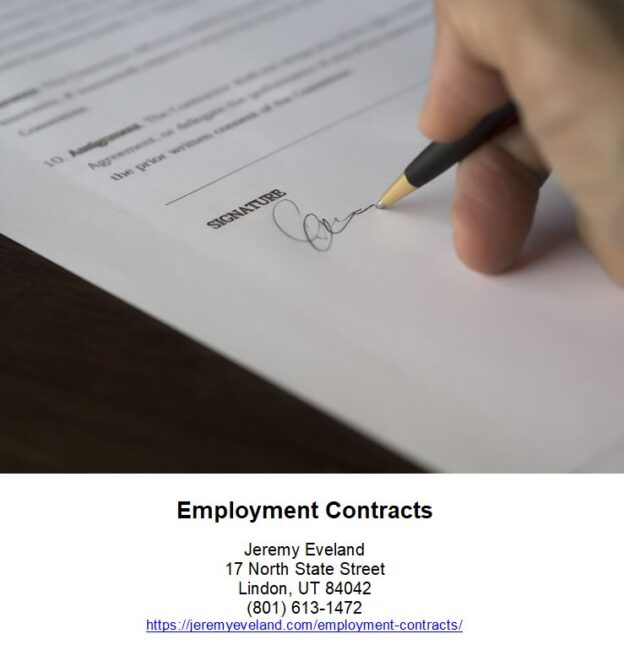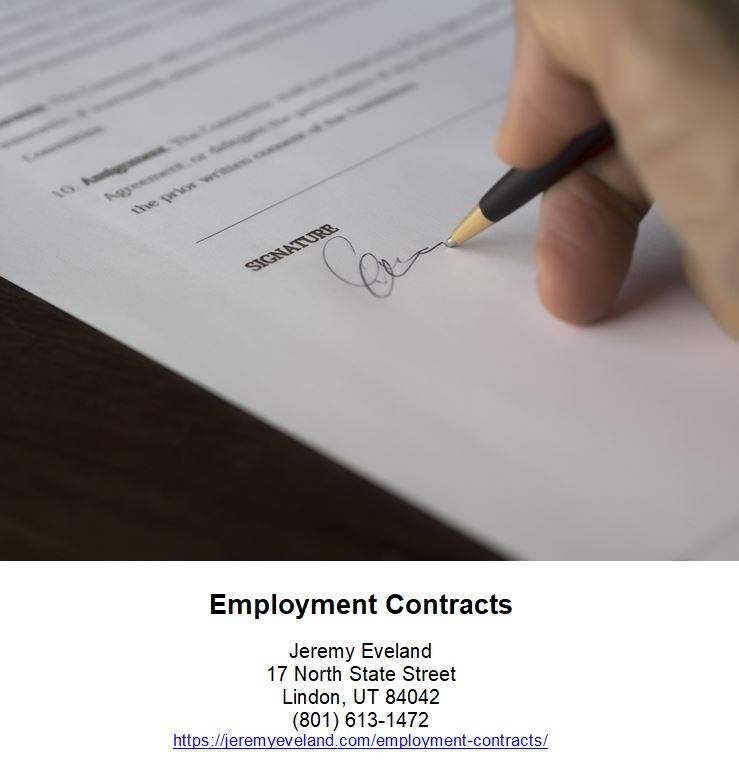How to Hire Employees Legally in Utah: A Comprehensive Guide
The Importance of Hiring Employees Legally in Utah
As a business owner, it is essential to understand the importance of hiring employees legally, especially in Utah. State and federal labor laws require employers to comply with certain regulations when hiring employees.
Failure to comply with these laws can result in hefty fines, lawsuits, and damage to a business’s reputation. In Utah, there are several employment laws that businesses must follow.
Employers must adhere to minimum wage requirements, overtime laws, discrimination laws, and workers’ compensation laws. These regulations aim to protect the rights of employees and ensure fair treatment in the workplace.
Additionally, by hiring legally in Utah, businesses can avoid costly legal battles. When applicants feel they were unlawfully denied employment or mistreated during the hiring process, they may choose to pursue legal action against a company.
Lawsuits can be expensive and time-consuming for businesses of any size. Overall, hiring employees legally is critical for creating a positive work environment and protecting your business’s reputation and finances.
An Overview of the Hiring Process
The hiring process can be complex and time-consuming for employers. It involves several steps from defining job roles to onboarding new hires. Typically it includes:
Preparing for Hiring Employees:
Before posting job openings or reviewing resumes, employers need first to define job roles and responsibilities clearly. This will help attract candidates who align with company needs before interviewing them.
Finding Candidates:
Once job roles are defined; employers need to seek out potential candidates through various sources such as posting on relevant platforms like LinkedIn or industry-specific websites.
Screening Candidates:
After receiving applications from candidates; they need reviewing based on qualifications that comply with the state’s labor law requirements.
They also need performing background checks before continuing who match their criteria.
Interviewing Candidates:
Candidates that pass the screening process need to be interviewed, ensuring that the interviewer asks questions in compliance with Utah labor laws and avoids discriminatory ones.
Selecting the Right Candidate:
After candidates have completed interviews, employers must evaluate their qualifications, experience and determine whether they match their job roles and responsibilities. Then an offer for employment can be made.
Onboarding New Hires:
Once a candidate accepts a job offer, employers need to start onboarding them by providing training on company policies and procedures while ensuring compliance with federal laws. Understanding Utah labor laws is crucial for hiring employees legally.
Employers must follow all regulations while preparing for hiring employees, finding candidates, screening candidates based on qualifications and conduct compliant interviews before selecting the right candidate. Once selected, employers should make an offer that complies with state regulations before ensuring compliance with federal law requirements during onboarding.
Understanding Utah Labor Laws
Utah has a number of labor laws in place that employers must follow when hiring employees. These laws are designed to protect both employees and employers by setting minimum standards for wages, working conditions, and other employment-related matters.
Employers who fail to comply with these laws risk facing legal action from their employees or government agencies. In this section, we will discuss some of the most important Utah labor laws that employers must be aware of.
Minimum wage requirements
Utah’s minimum wage is currently set at $7.25 per hour, which is the same as the federal minimum wage. However, some cities in Utah have chosen to set their own minimum wage rates that are higher than the state or federal rate. Employers in these cities must comply with the higher rate.
It’s important to note that certain types of workers may be exempt from the minimum wage requirements. For example, workers who receive tips may be paid a lower hourly rate if their tips bring them up to or above the minimum wage level.
Overtime laws
Utah law requires employers to pay overtime rates to employees who work more than 40 hours in a week. The overtime rate is one and a half times an employee’s regular hourly rate.
Some industries, such as health care and emergency services, may have different rules for calculating overtime. Employers should also be aware of exemptions from overtime rules for certain types of workers such as executives and professionals who meet specific criteria.
Discrimination laws
Utah law prohibits discrimination against employees on the basis of race, color, national origin, religion, sex (including pregnancy), age (over 40), disability status, or sexual orientation/gender identity. Employers must take steps to prevent discriminatory behavior such as creating policies against discrimination in hiring practices and providing training for all employees. Additionally, employers must provide reasonable accommodations for employees with disabilities.
Workers’ compensation laws
Utah requires most employers to carry workers’ compensation insurance, which provides benefits to employees who are injured or become ill while on the job. Employers who fail to provide workers’ compensation coverage can face legal penalties.
It’s important for employers to understand the workers’ compensation claims process and how to properly file a claim. This includes providing appropriate medical care and documentation for the employee’s injuries.
Conclusion
Understanding Utah labor laws is crucial for any employer who wants to hire employees legally and avoid legal problems in the future. Minimum wage requirements, overtime laws, discrimination laws, and workers’ compensation laws are just some of the important regulations that employers must follow. By staying compliant with these regulations, employers can protect their businesses and their employees from harm while ensuring that they are operating within the bounds of the law.
Preparing for Hiring Employees
Defining Job Roles and Responsibilities
Before starting the hiring process, it is essential to have a clear understanding of the job roles and responsibilities. This helps in creating accurate job descriptions, determining the necessary qualifications and experience required for the position, and ensuring that you hire employees who can efficiently perform their duties. To define job roles and responsibilities, start by identifying specific tasks and functions that will be expected of the employee.
Consider what type of work environment they will be in, whether it is an office setting or a more hands-on role. Additionally, consider what skills are necessary to complete each task and ensure that these are identified as well.
Once you have identified all the duties associated with the role, classify them based on level of importance or priority. This helps in determining which skills should be emphasized during candidate screening.
Creating Job Descriptions
Creating a comprehensive job description is crucial when hiring employees legally in Utah. A job description should provide an overview of what is expected from an employee in terms of duties, qualifications required to perform those duties, salary range or compensation package offered by the company. When creating a job description, consider breaking down responsibilities into separate bullet points to make it easier for candidates to understand their potential duties at this position.
Also indicate if there are any specific certifications or licenses required for this role. In addition to listing out qualifications needed for this position like educational degrees or experience level , include details about your company’s culture – such as dress code expectations or social events – so that candidates can assess whether they would fit well into your organization’s work environment.
Determining Salary and Benefits
Determining salary and benefits is another important aspect when hiring employees legally in Utah. Employers must comply with federal minimum wage laws while also offering competitive rates for their industry sector.
When deciding on a salary range, research industry averages and determine exactly what is expected of the employee. While creating a salary range, keep in mind other benefits that you will be offering – like health insurance or retirement savings – as these can impact an employees’ overall compensation.
Additionally, consider the complete package offered by your competitors and what benefits are valued most by potential employees. Compare your compensation package to theirs to ensure that it is competitive enough to attract top talent.
Preparing for hiring employees involves defining job roles and responsibilities, creating comprehensive job descriptions, and determining an appropriate salary and benefits package. By investing time and effort into these areas prior to starting the hiring process, employers can attract more qualified candidates while also ensuring they comply with Utah labor laws.
Finding Candidates
One of the most critical steps in the hiring process is finding qualified candidates for the positions you need to fill. In Utah, there are several ways to go about this, including posting job openings on relevant platforms, networking with industry professionals, and utilizing recruitment agencies.
Posting Job Openings on Relevant Platforms
The first step to attracting potential candidates is to post job openings on relevant platforms. This can include job boards such as Monster or Indeed or social media sites like LinkedIn or Facebook.
To maximize your reach, consider posting across multiple platforms. This will increase your chances of reaching a wider pool of candidates.
When creating your job postings, be sure to provide detailed information about the position and its requirements. This includes the job title and description, required qualifications and experience, salary range, and any benefits offered.
Including this information upfront will help attract qualified candidates who meet your requirements. In addition to online postings, also consider reaching out to local organizations such as chambers of commerce or community groups that may have access to a pool of potential candidates.
Networking with Industry Professionals
Another way to find qualified candidates is through networking with industry professionals. Attend local networking events or join professional organizations related to your industry. This can help you connect with individuals who have experience in your field and may be interested in working for your company.
During these events, take the time to introduce yourself and learn more about individuals’ backgrounds and experience. You never know when an individual may be looking for new opportunities or able to refer you to someone who would be a good fit for an open position at your company.
Utilizing Recruitment Agencies
If you’re struggling to find qualified candidates on your own, consider partnering with a recruitment agency in Utah. These agencies have access to a pool of potential candidates and can help you find someone who meets your specific requirements. When working with a recruitment agency, be sure to provide them with detailed information about the position and your requirements.
This will help them identify potential candidates who are a good fit for your company. The recruitment agency will also handle the initial screening process, saving you time and resources.
Partnering with a recruitment agency may come at an additional cost, so be sure to weigh the benefits against the expense. It can be a good investment if you’re having difficulty finding qualified candidates on your own.
Conclusion
Finding qualified candidates is crucial to the success of any business. By posting job openings on relevant platforms, networking with industry professionals, and utilizing recruitment agencies in Utah, you can increase your chances of finding someone who meets your specific requirements.
Remember to provide detailed information about the position and its requirements when posting job openings or working with recruitment agencies. Be sure to take advantage of networking opportunities as well, as they can help you connect with individuals who have experience in your field.
Screening Candidates
Reviewing Resumes and Cover Letters
The first step in screening potential candidates is to review their resumes and cover letters. This is the initial opportunity to evaluate whether or not they meet the basic qualifications for the job, such as education, experience, and skills.
It’s also an opportunity to evaluate their attention to detail and communication skills, which can be important factors in many job roles. When reviewing resumes and cover letters, start by looking for specific qualifications that match the job description.
Look for relevant experience and education that aligns with the needs of your company. However, keep in mind that some candidates may have transferable skills from other industries or roles that could also make them a strong fit.
Another important consideration when reviewing resumes is to look for any gaps in employment or unexplained changes in jobs. While these may not necessarily disqualify a candidate, they may warrant further investigation during the screening process.
Conducting Phone Screenings or Initial Interviews
Once you’ve narrowed down your candidate pool based on their resume and cover letter, it’s time to conduct phone screenings or initial interviews. These are typically brief conversations aimed at getting a better sense of the candidate’s personality, work style, and communication skills.
Prepare a list of standard questions that will give you insight into these areas as well as any relevant experience or qualifications not already listed on their resume. Be sure to stay focused on job-related questions and avoid asking about personal details such as age or marital status which could be seen as discriminatory.
As with resumes and cover letters, look for any red flags during phone screenings or initial interviews such as poor communication skills or unprofessional behavior. Keep detailed notes on each candidate so you can easily compare them later when making your final decision.
Performing Background Checks
Before making an offer to a candidate, it’s important to perform background checks to verify their education, work history, and criminal record. This can help protect your company from potential legal issues down the line.
When performing background checks, be sure to comply with all applicable Utah state laws. In general, you should obtain written consent from the candidate before running a background check and provide them with a copy of the report if any negative information is found.
There are many third-party services available that can perform background checks for you. Make sure you choose a reputable service that complies with all relevant laws and regulations.
Keep in mind that certain industries or job roles may have additional requirements for background checks such as drug testing or driving records. Make sure you are aware of any industry-specific regulations before making an offer to a candidate.
Screening candidates is an important part of the hiring process that can help ensure you find the best fit for your company. By reviewing resumes and cover letters, conducting phone screenings or initial interviews, and performing thorough background checks, you can minimize risk and make informed decisions about who to hire.
Interviewing Candidates
Preparing Interview Questions That Comply with Utah Labor Laws
When preparing interview questions for potential candidates, it is essential to ensure that your questions are legal. Utah labor laws prohibit employers from asking questions that could be deemed discriminatory based on the candidate’s race, gender, religion, age, or any other protected characteristic. To avoid legal issues, it is crucial to ask questions that are related explicitly to the job duties and requirements.
Here are some examples of acceptable interview questions: – Can you describe your experience in this particular field?
– What do you believe are your greatest strengths when it comes to this line of work? – What specific skills and qualifications can you bring to our team?
It’s important to avoid asking any personal or invasive questions such as a candidate’s marital status or whether they have children. Be cautious with any inquiries regarding disability; only ask about a disability if it directly relates to the job.
Conducting Interviews in a Professional Manner
When conducting an interview for a potential employee in Utah, it is essential to maintain professionalism at all times. Keep in mind that during this process, the candidate will be evaluating not only their ability but also their desire to work at your company. Therefore, creating an atmosphere of respect and professionalism is crucial.
Here are some tips for conducting interviews professionally: – Have a clear agenda prepared so that interviews stay on track
– Provide necessary information about the company and position being offered – Listen actively and take notes
– Avoid interrupting candidates as they speak – Don’t engage in small talk or make inappropriate comments
Also remember that first impressions matter! Dress appropriately for the interview and be punctual.
Avoiding Discriminatory Questions
It’s crucial when interviewing candidates in Utah not just what you ask but also how you frame your words. Avoid phrasing that could be interpreted negatively or lead to discriminatory questions.
Be sure to steer clear of any inquiries about personal, non-work-related topics. Here are examples of questions that could be seen as discriminatory:
– Do you have young children? – What church do you attend?
– Are you married? These questions are not directly related to the candidate’s qualifications and may imply a bias that violates anti-discrimination laws.
Instead, focus on questions directly tied to the position, such as “Can you describe your experience working with XYZ software?” or “What was your most significant achievement in your previous job?” By adhering to these guidelines during the interview process, employers can increase their chances of hiring qualified candidates while avoiding legal issues and providing a professional impression.
Selecting the Right Candidate
Evaluating candidates based on qualifications, experience, and fit
When selecting the right candidate for a job opening, it’s important to evaluate them based on their qualifications, experience, and fit within the company culture. Qualifications refer to their education and training in relation to the job requirements.
Experience refers to their previous work experience and whether it aligns with the job responsibilities. Fit within the company culture refers to whether they share similar values, attitudes, and work ethic with other employees.
During the interview process, ask questions that will help you evaluate each candidate’s qualifications and experience. Ask them about their relevant education or certifications, as well as any previous job duties that align with your open position.
Also ask behavioral questions that will help you assess their fit within your company culture. Once you’ve narrowed down your list of candidates based on qualifications, experience, and fit within the company culture, it’s important to move forward with making an offer that complies with Utah labor laws.
Making an offer that complies with Utah labor laws
When making an offer to a candidate in Utah there are several things employers need to keep in mind in order to stay compliant with state labor laws. First and foremost is ensuring compliance with Utah’s minimum wage law which is $7.25 per hour for employees who do not receive tips or $2.13 per hour for tipped employees until tips bring them up over minimum wage.
Employers should also consider offering benefits such as health insurance or paid time off as these are not required by law but can be attractive incentives for candidates. Additionally employers should provide information about workers’ compensation insurance which is required by law in Utah if a business has one or more employees working at any given time regardless of whether they are full-time or part-time employees.
Providing necessary paperwork to new hires
After selecting the right candidate and making an offer, it’s important to provide necessary paperwork to new hires. This includes federal and state tax forms, employee handbooks, non-disclosure agreements, and any other necessary forms required by state and federal laws.
Employers in Utah are also required to provide new employees with a notice of employment status which outlines whether they are full-time or part-time, whether they are at-will or have a fixed term contract, and if there is any probationary period. It’s important for employers to provide all necessary paperwork in a timely manner as it can help prevent issues down the line such as misunderstandings about policies or taxes.
Conclusion
Selecting the right candidate for a job opening can be a challenging process but evaluating candidates based on their qualifications, experience, and fit within the company culture can help make it easier. Once you’ve selected the right candidate it’s important to make an offer that complies with Utah labor laws which includes compliance with minimum wage requirements and providing information about workers’ compensation insurance.
Providing necessary paperwork such as tax forms, employee handbooks, non-disclosure agreements, and notices of employment status is also crucial in ensuring compliance with state and federal laws. By following these guidelines employers can ensure that they hire employees legally in Utah while avoiding potential legal issues down the line.
Onboarding New Hires
Training new hires on company policies and procedures
Once you have selected the right candidate for the job, it’s time to onboard them. Onboarding is the process of familiarizing new employees with your company’s policies, procedures, and culture.
Proper training of new hires on company policies and procedures is critical in ensuring that they understand how to operate within your organization. The training should include both formal instruction and hands-on experience.
To start, create a comprehensive training program that outlines the procedures and policies of your organization. Be sure to cover topics such as safety protocols, benefits programs, performance expectations, dress code requirements, harassment/discrimination policy and security measures.
It’s important to provide a clear overview of each policy with examples so that new employees can understand how these apply to their role within the organization. It’s also vital to provide hands-on experience on how these procedures are applied in real-life situations.
Ensuring compliance with federal and state regulations
Federal laws require employers to complete certain forms when hiring new employees. You will need to obtain an employee identification number (EIN) from the IRS for tax purposes. You may also need to fill out an I-9 form from USCIS (U.S Citizenship & Immigration Services) which verifies that employees are legally authorized to work in the United States.
It’s essential that you familiarize yourself with all relevant state labor laws – including minimum wage rates, overtime laws, discrimination laws and worker’s compensation requirements- before hiring any employee. Ensure that all necessary paperwork is completed correctly before you start operating with a new hire as it protects both parties involved from any legal issues down the line.
Conclusion
Hiring employees legally in Utah involves following specific guidelines for each step of the hiring process while complying with federal and state regulations. To ensure compliance, it’s essential to understand and keep up-to-date with the current labor laws in Utah.
While hiring new employees can be a daunting task, following the guidelines outlined in this article should help you navigate through the process successfully. By taking your time to prepare and screen candidates properly, you will increase your chances of attracting qualified individuals while minimizing risks for legal issues down the line.
Remember that onboarding new hires plays an essential role in making sure they are equipped with everything they will need to succeed within your organization. By providing comprehensive training on company policies and procedures and ensuring compliance with federal and state regulations, you can feel confident that you are hiring employees legally in Utah.
Areas We Serve
We serve individuals and businesses in the following locations:
Salt Lake City Utah
West Valley City Utah
Provo Utah
West Jordan Utah
Orem Utah
Sandy Utah
Ogden Utah
St. George Utah
Layton Utah
South Jordan Utah
Lehi Utah
Millcreek Utah
Taylorsville Utah
Logan Utah
Murray Utah
Draper Utah
Bountiful Utah
Riverton Utah
Herriman Utah
Spanish Fork Utah
Roy Utah
Pleasant Grove Utah
Kearns Utah
Tooele Utah
Cottonwood Heights Utah
Midvale Utah
Springville Utah
Eagle Mountain Utah
Cedar City Utah
Kaysville Utah
Clearfield Utah
Holladay Utah
American Fork Utah
Syracuse Utah
Saratoga Springs Utah
Magna Utah
Washington Utah
South Salt Lake Utah
Farmington Utah
Clinton Utah
North Salt Lake Utah
Payson Utah
North Ogden Utah
Brigham City Utah
Highland Utah
Centerville Utah
Hurricane Utah
South Ogden Utah
Heber Utah
West Haven Utah
Bluffdale Utah
Santaquin Utah
Smithfield Utah
Woods Cross Utah
Grantsville Utah
Lindon Utah
North Logan Utah
West Point Utah
Vernal Utah
Alpine Utah
Cedar Hills Utah
Pleasant View Utah
Mapleton Utah
Stansbury Par Utah
Washington Terrace Utah
Riverdale Utah
Hooper Utah
Tremonton Utah
Ivins Utah
Park City Utah
Price Utah
Hyrum Utah
Summit Park Utah
Salem Utah
Richfield Utah
Santa Clara Utah
Providence Utah
South Weber Utah
Vineyard Utah
Ephraim Utah
Roosevelt Utah
Farr West Utah
Plain City Utah
Nibley Utah
Enoch Utah
Harrisville Utah
Snyderville Utah
Fruit Heights Utah
Nephi Utah
White City Utah
West Bountiful Utah
Sunset Utah
Moab Utah
Midway Utah
Perry Utah
Kanab Utah
Hyde Park Utah
Silver Summit Utah
La Verkin Utah
Morgan Utah
How to Hire Employees Legally in Utah Consultation
When you need help on How to Hire Employees Legally in Utah call Jeremy D. Eveland, MBA, JD (801) 613-1472 for a consultation.
Jeremy Eveland
17 North State Street
Lindon UT 84042
(801) 613-1472
Related Posts
Corporate Attorney Salt Lake City Utah
Business Succession Lawyer Saratoga Springs Utah
Estate Planning Salt Lake City Utah
Business Succession Lawyer Holladay Utah
Corporate and Business Law in Utah
Does Starting My Own Business Mean I Get A Corporation Automatically?
Impact of Environmental Regulations on Business Law Compliance
Business Lawyer South Jordan Utah
Business Lawyer Millcreek Utah
Business Lawyer Taylorsville Utah
How Artificial Intelligence is Shaping the Future of Business Law
Estate Planning is Crucial for People of All Income Levels
Navigating Legal Challenges in Business Succession Planning
Business Lawyer Bountiful Utah









